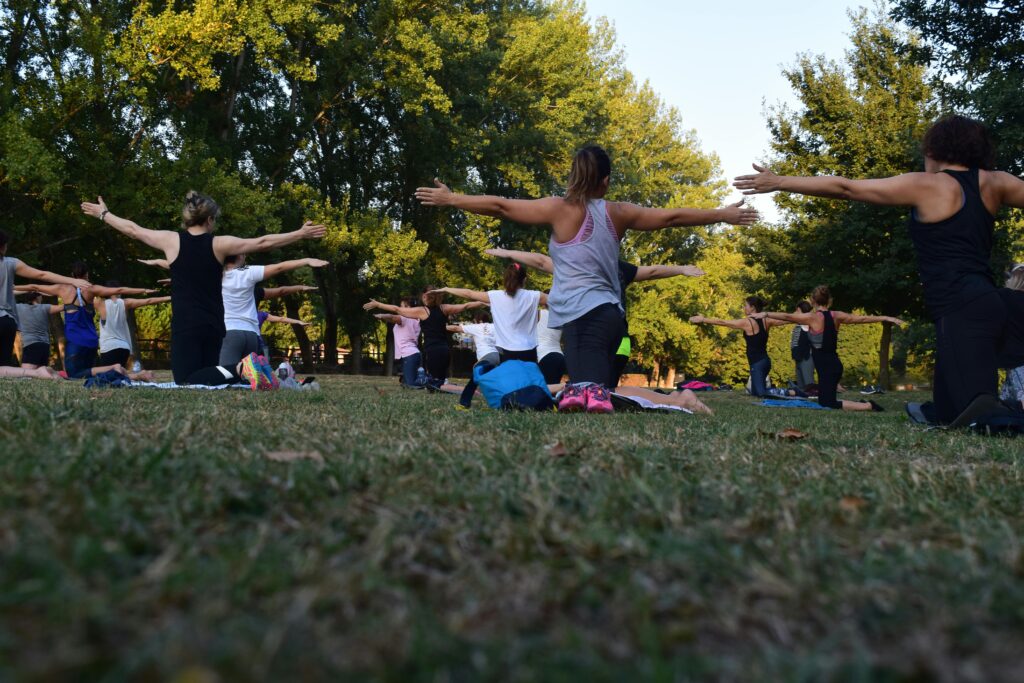Introduction
Insomnia, often misconceived as a trivial issue, can significantly impact one’s overall well-being and quality of life. Characterized by difficulty falling asleep, staying asleep, or experiencing non-restorative sleep, insomnia affects millions worldwide. In this article, we delve into the various facets of insomnia, including its causes, effects, and strategies for management.

Causes of Insomnia
Insomnia can stem from a multitude of factors, both physiological and psychological. Stress and anxiety, stemming from work, relationships, or other life challenges, often play a significant role in disrupting sleep patterns. Additionally, medical conditions such as chronic pain, asthma, or gastrointestinal issues can contribute to insomnia. Certain medications, substance abuse, and poor sleep hygiene practices like irregular sleep schedules or excessive screen time before bed can exacerbate the problem.

Effects of Insomnia
The effects of insomnia extend far beyond mere tiredness during the day. Sleep deprivation can impair cognitive function, leading to difficulties in concentration, memory lapses, and decreased productivity. Chronic insomnia has been linked to an increased risk of developing mental health disorders such as depression and anxiety. Furthermore, inadequate sleep weakens the immune system, making individuals more susceptible to illnesses and diseases. In severe cases, insomnia can even heighten the risk of accidents and injuries due to impaired motor skills and judgment.

management of insomnia
Fortunately, several strategies can help manage insomnia and improve sleep quality. Adopting healthy sleep habits, commonly referred to as sleep hygiene, is paramount. This includes maintaining a consistent sleep schedule, creating a conducive sleep environment free from distractions, and limiting stimulants like caffeine and nicotine close to bedtime. Relaxation techniques such as deep breathing exercises, meditation, or progressive muscle relaxation can help alleviate stress and promote better sleep.
Cognitive-behavioral therapy for insomnia (CBT-I) has emerged as an effective non-pharmacological treatment for chronic insomnia. CBT-I aims to identify and address negative thoughts and behaviors surrounding sleep, replacing them with healthier alternatives. Techniques such as sleep restriction, stimulus control, and cognitive restructuring are integral components of CBT-I.
For those requiring pharmacological intervention, medications such as sedative-hypnotics may be prescribed under the guidance of a healthcare professional. However, these medications are typically recommended for short-term use due to the risk of dependence and tolerance.
Positive Outlook
Making positive lifestyle changes can often alleviate insomnia, a condition that ranges from temporary bouts lasting a few days to persistent cases extending over three months or more. Seeking medical advice if insomnia persists beyond a few weeks is advisable.
Having a strategy for managing sleeplessness can be immensely helpful. Options include staying in bed and focusing on relaxation without pressuring oneself to sleep, relocating to a different room for a calming activity, or engaging in a more stimulating and productive task. Experimentation is key to discovering what method works best for individual needs.
Maintaining a sleep journal offers insights into potential triggers for insomnia. By diligently documenting nightly routines, dietary intake, and medication usage, patterns and correlations may emerge, aiding in the identification of factors contributing to sleep disturbances.

Home Remedies for Sleep Deprivation
Engaging in practices such as mindfulness meditation and incorporating supplements like magnesium into your routine may facilitate better sleep quality. However, if these methods fail to alleviate your symptoms, seeking assistance from a healthcare professional may be beneficial.
Short-term insomnia is a prevalent sleep disorder characterized by difficulties in falling and staying asleep until the desired waking time. While individual sleep requirements vary, most adults typically necessitate a minimum of seven hours of sleep per night for optimal functioning. If disruptions in your sleep patterns are adversely impacting your overall well-being, exploring various home remedies could offer relief.
By continuing to explore, you can discover effective strategies for managing your sleep patterns. Techniques such as meditation, regular exercise, and other home-based interventions hold promise in promoting restful sleep. Taking proactive steps to address your sleep concerns empowers you to reclaim control over your sleep health and enhance your overall quality of life.
1. Meditation
- Engaging in mindfulness meditation involves the deliberate act of slowing down, focusing on the rhythm of your breath, and quietly observing the sensations that arise within your body, as well as the thoughts and emotions that come and go.
- The benefits of mindfulness meditation are manifold, aligning perfectly with a lifestyle aimed at fostering good sleep and overall well-being. It’s lauded for its ability to alleviate stress, enhance concentration, and bolster the immune system.
- Supported by research, a 2011 study demonstrated significant improvements in insomnia and overall sleep quality among participants who engaged in regular meditation practices. This involved attending meditation classes, participating in daylong retreats, and maintaining a consistent home practice over several months.
- The frequency of meditation sessions is flexible, allowing individuals to integrate it into their daily routine. Even brief sessions of 15 minutes in the morning or evening can yield benefits. Joining a meditation group on a weekly basis can provide additional motivation and support, while online guided sessions offer convenience and structure.
- While meditation is generally safe, it’s important to acknowledge its potential to evoke strong emotions. If the practice exacerbates feelings of distress or unease, it’s advisable to pause or seek guidance from a qualified instructor.

2. Yoga
- Engaging in yoga practice has been scientifically proven to positively impact sleep quality, while also serving as a potent stress reliever, enhancer of physical functionality, and promoter of mental clarity. Opting for yoga styles emphasizing moving meditation or breathwork over physically demanding postures can enhance the experience, fostering a deeper sense of presence and concentration. Styles such as Yin and restorative yoga are particularly conducive to this approach.
- Consistency is key in reaping the benefits of yoga, aiming for several longer sessions weekly alongside a daily commitment of at least 20 minutes for self-practice. Incorporating yoga into your pre-bedtime routine can facilitate relaxation and promote a restful sleep.
- It’s imperative to listen to your body during practice. If a posture feels uncomfortable or strained, it’s advisable to refrain from forcing it, as doing so may lead to injury. Each individual’s body is unique, and what feels right varies from person to person. Prioritizing comfort and alignment ensures a safe and gratifying yoga experience.

3. Mantra Chanting
- Engaging in the practice of repeating a mantra or positive affirmation can significantly aid in centering and calming the mind. Mantras, through their repetitive recitation, have the power to induce a state of relaxation by quieting the incessant chatter of the mind.
- A notable study conducted in 2015 involved teaching homeless women to silently repeat a mantra throughout their day and before bedtime. Remarkably, those who adhered to this practice for just a week reported notable reductions in insomnia levels.
- Whether you opt for a mantra in Sanskrit, English, or any other language, the key is to select one that resonates with you on a deep level. It should exude positivity and simplicity, facilitating a sense of tranquility and ease. By focusing on the rhythmic repetition of the mantra, you can effectively steer your mind towards a state of relaxation conducive to sleep.
- Whether uttered silently or aloud, the mantra serves as a focal point to tether wandering thoughts. Should any discomfort or agitation arise during the chanting, it is imperative to listen to your body and discontinue the practice if necessary. Embrace the flexibility to experiment with different mantras until you find the one that harmonizes perfectly with your being.

4. Regular Exercise
- Physical Health Benefits: Regular exercise maintains healthy body weight, reduces chronic disease risks, strengthens the heart, improves circulation, and boosts immune function.
- Mental Health and Cognitive Benefits: Exercise stimulates endorphin release, reducing stress, anxiety, and depression. It enhances cognitive function, memory, concentration, and neuroplasticity, guarding against age-related cognitive decline.
- Enhanced Quality of Life: Exercise increases energy levels, improves sleep quality, and enhances self-esteem. It fosters social connections, promoting a sense of belonging and fulfillment beyond physical health benefits.
- Longevity and Aging Gracefully: Active lifestyles contribute to longevity and graceful aging by preserving muscle mass, bone density, and joint flexibility. Regular exercise mitigates age-related ailments such as osteoarthritis, sarcopenia, and osteoporosis.
- Sustainable Habit Formation: Establishing a habit of regular exercise cultivates discipline, resilience, and self-care habits. Consistency is key, with small, enjoyable activities laying the foundation for lifelong health and wellness.

5. Drink Up
- While scientific evidence may not strongly support the effectiveness of nighttime drinks for improving sleep, there’s no harm in giving them a try, according to experts like Dr. Gamaldo. Patients seeking treatment without worrying about side effects or drug interactions often find these drinks worth experimenting with.
- Warm milk has a longstanding reputation for its potential sleep-inducing properties. It contains substances that mimic tryptophan’s effects on the brain, a precursor to serotonin, a neurotransmitter involved in regulating the sleep-wake cycle.
- Similarly, chamomile tea is believed to contain flavonoids that interact with benzodiazepine receptors in the brain, aiding in the sleep process. Unlike caffeinated options such as green or Earl Grey tea, chamomile won’t disrupt sleep patterns.
- Tart cherry juice is another popular choice, potentially supporting melatonin production, a hormone vital for regulating sleep cycles. Incorporating these drinks into a nightly routine may provide a natural and soothing way to prepare the body for sleep.
- While individual responses may vary, these beverages offer a gentle and accessible approach to promoting relaxation and improving sleep quality, making them worth considering for those seeking non-pharmacological solutions.

6. Melatonin Supplements
- The importance of melatonin in regulating sleep cycles cannot be overstated. This hormone, naturally released by the brain approximately four hours before bedtime, plays a vital role in inducing feelings of sleepiness. Its release is triggered by the body’s response to decreased exposure to light, a signal that it’s time to wind down for the night.
- In today’s modern world, however, artificial light sources such as phones, laptops, and TVs disrupt this natural process by inhibiting melatonin release. This prolonged exposure to unnatural light can make it challenging for many individuals to fall asleep at night.
- Thankfully, melatonin supplements are widely available over the counter at local pharmacies. These supplements can help regulate sleep patterns by providing the body with the melatonin it needs to initiate the sleep process. However, it’s important to exercise caution when selecting melatonin supplements.
- Since melatonin supplements are not regulated by the FDA, the dosage and ingredients may vary between different brands. To ensure consistency and safety, it’s advisable to stick with one reputable brand and avoid purchasing from unknown online sources.
- By prioritizing sleep hygiene and incorporating melatonin supplements from trusted sources, individuals can mitigate the negative effects of artificial light exposure and improve their overall sleep quality. This approach offers a practical solution for addressing the challenges posed by modern lifestyles on sleep patterns.

7. Massage Routine
- In our fast-paced world, sleep deprivation has become an all too common affliction, affecting millions worldwide. Yet, amidst the array of remedies, one often overlooked solution stands out: massage therapy. Beyond mere relaxation, massage offers a holistic approach to combating sleep deprivation, addressing both physical and psychological factors that disrupt restful sleep.
- Incorporating regular massage sessions into one’s wellness routine can significantly improve sleep quality and duration, leading to enhanced overall well-being. As we prioritize self-care in our quest for better sleep, let us not overlook the profound benefits that massage therapy offers in our journey towards restful nights and rejuvenated mornings.
- Massage promotes relaxation by reducing muscle tension and relieving stress, two primary contributors to sleep disturbances. The gentle pressure applied during a massage stimulates the release of endorphins, neurotransmitters known for their calming effect on the body, paving the way for a more peaceful slumber.

8. Go Dark
- Going dark, or reducing exposure to artificial light sources, has been increasingly recognized as a crucial strategy for combating sleep deprivation. In our modern era dominated by screens and artificial illumination, the natural rhythms of sleep can easily be disrupted, leading to chronic sleep deficits. When we intentionally dim the lights or turn off electronic devices before bedtime, we signal to our bodies that it’s time to wind down and prepare for rest.
- In essence, embracing darkness as part of our sleep hygiene routine can serve as a potent antidote to the pervasive problem of sleep deprivation in our modern society. By acknowledging the importance of darkness in promoting healthy sleep patterns, we can reclaim control over our rest and vitality.
- The absence of light triggers the production of melatonin, a hormone that regulates sleep-wake cycles. By going dark, we facilitate the body’s natural response to darkness, promoting deeper and more restorative sleep. Studies have shown that individuals who adopt a “lights out” approach experience improved sleep quality and duration compared to those who remain exposed to artificial light sources.

9. Use of Magnesium
Magnesium, a vital mineral involved in numerous bodily functions, has gained attention for its potential role in improving sleep quality. Research suggests that magnesium plays a crucial role in regulating neurotransmitters involved in sleep, such as GABA, which has calming effects on the brain. By modulating GABA activity, magnesium can help quiet the mind and promote relaxation, facilitating the onset of sleep.- Incorporating magnesium-rich foods such as nuts, seeds, leafy greens, and whole grains into one’s diet or taking magnesium supplements under the guidance of a healthcare professional may offer a natural and effective solution for improving sleep quality. However, it’s essential to maintain a balanced approach and consider magnesium as part of a comprehensive sleep hygiene regimen.
- Additionally, magnesium is involved in the regulation of melatonin, the hormone responsible for signaling the body when it’s time to sleep. Adequate magnesium levels have been linked to higher melatonin production, leading to more robust sleep-wake cycles.
- Furthermore, magnesium deficiency has been associated with insomnia and other sleep disturbances. Supplementing with magnesium may help address this deficiency and alleviate sleep-related issues.

Conclusion
Insomnia is a prevalent sleep disorder with far-reaching consequences for physical and mental health. By understanding its causes and effects, individuals can take proactive steps to manage insomnia effectively. Whether through adopting healthy sleep habits, seeking therapy, or consulting healthcare professionals for personalized treatment, addressing insomnia is crucial for restoring restful sleep and improving overall well-being. Remember, quality sleep is not a luxury but a fundamental necessity for optimal health and vitality. By addressing root causes precipitating sleep disruptions and embracing tailored interventions, individuals can embark on the journey toward restorative and invigorating sleep, fostering physical vigor, mental acuity, and emotional equilibrium.
Disclaimer
- Before delving into any health-related changes or decisions, it’s imperative to emphasize the importance of consulting a qualified physician or healthcare provider. While the information provided here may offer insights and suggestions, it is not a substitute for professional medical advice, diagnosis, or treatment.
- Every individual’s health profile is unique, and what works well for one person may not be suitable for another. A physician can assess your medical history, current health status, and any potential risk factors to provide personalized guidance tailored to your needs.
- Furthermore, self-diagnosis and treatment without proper medical supervision can pose significant risks. Certain health conditions may require specific interventions or medications that only a healthcare professional can prescribe safely.
- Moreover, the information presented here is based on general knowledge and research available at the time of writing. Medical science is continually evolving, and new findings may emerge that could impact the relevance or applicability of the information provided.
- Therefore, it is essential to approach any health-related decisions with caution and to seek guidance from a trusted healthcare professional. Your physician is your partner in health, and consulting them ensures that you receive the best possible care tailored to your individual circumstances.

